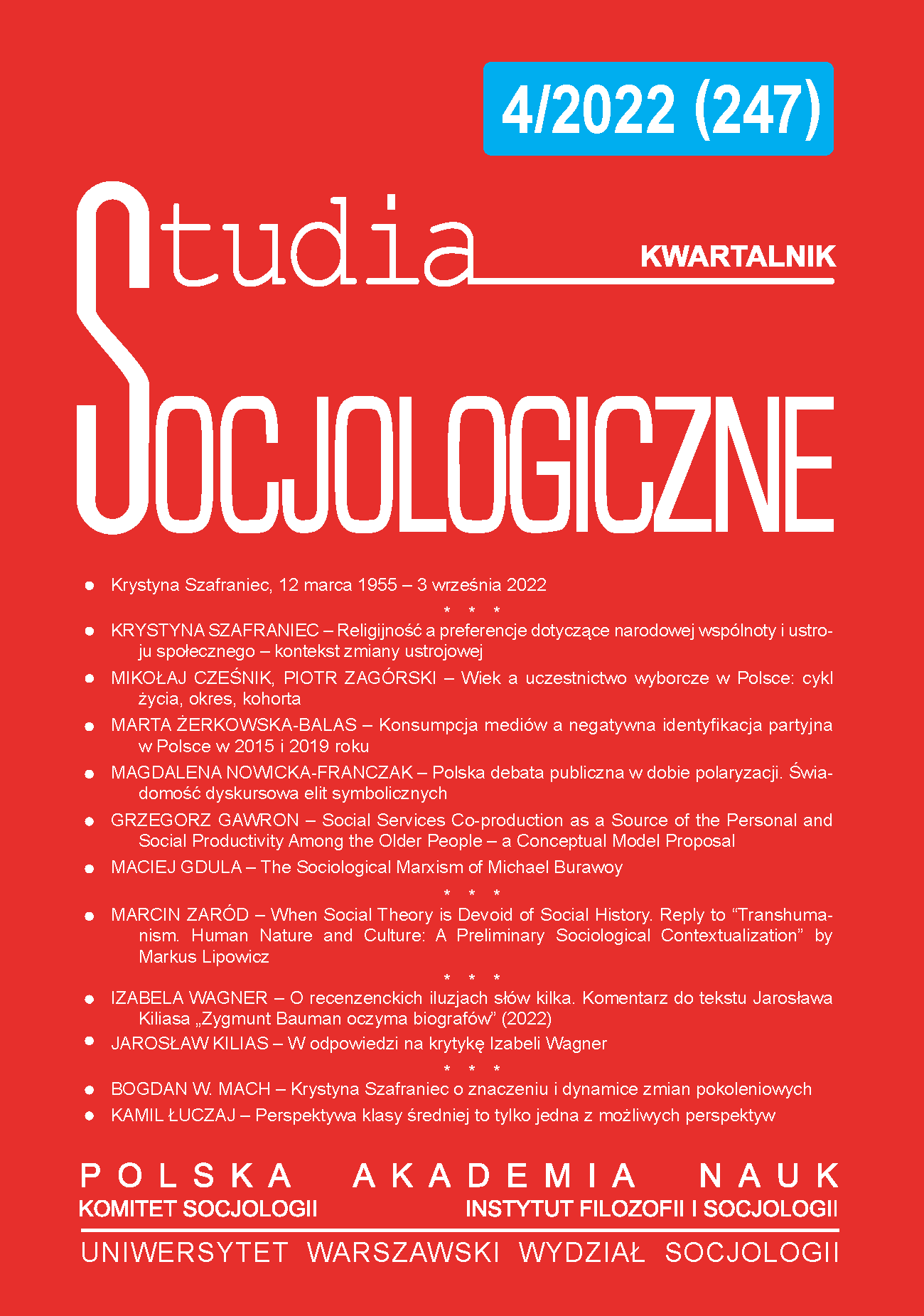Konsumpcja mediów a negatywna identyfikacja partyjna w Polsce w 2015 i 2019 roku
Media Consumption and Negative Party Identification in Poland in 2015 and 2019
Author(s): Marta Żerkowska-BalasSubject(s): Politics, Sociology
Published by: Instytut Filozofii i Socjologii Polskiej Akademii Nauk
Keywords: media; social identity theory; polarization; negative party identification; affective polarization
Summary/Abstract: Being the main source of information about politics, the media shape opinions, attitudes and behaviors of recipients. This process is influenced by the increasing polarization and politicization of Polish media. Instead of objective information, the latter offer a onesided message, consistent with the political preferences of the recipients, strengthening the sense of identity and intensifying mutual aversion between the supporters of rival political parties. The aim of this article is to verify whether and how the consumption of traditional and new media influenced the formation of negative party identification in 2015 and 2019. The analyzes of Polish National Election Study (PGSW) data confirm that regular use of the media, in particular the television and social media, increases the chances of developing a negative party identification. While the influence of these media depends on the political sophistication, it is independent of the compliance between the media message and the worldview of the respondents.
Journal: Studia Socjologiczne
- Issue Year: 247/2022
- Issue No: 4
- Page Range: 67-97
- Page Count: 31
- Language: Polish

